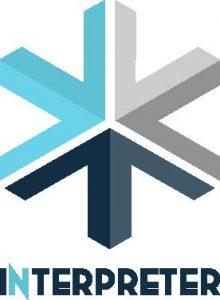
The boom in distributed generation has changed the operating paradigm of electricity grids. This change has generated new opportunities for planning, operation and control of the network, although it has also created new challenges. The INTERPRETER Project seeks to overcome these challenges by developing an open-source software platform for electricity grid management, with special focus on the distribution grid. The platform includes a grid modelling tool, which opens new opportunities for grid operators to run tools for optimised design, planning, operation and maintenance of the grid.
INTERPRETER, funded by the European Commission through the H2020 programme, is made up of nine partners from Spain (CIRCE, CARTIF, Atos Spain, Cuerva), Portugal (R&D Nester), Greece (CERTH), Denmark (DTU), Belgium (Ores) and France (Euroquality). This consortium is developing a grid modelling tool whose usefulness will be demonstrated with 10 applications at 3 pilot sites (2 real distribution grids and one grid laboratory).
More specifically, the 5 grid-operation tools are: Detection of non-technical losses, Ancillary services for voltage balancing and congestion management, DSO-TSO grid service coordination, Predictive maintenance and Self-heling. The remaining 5 grid planning tools cover: Optimised reactive power compensation, Phase balancing, Nodal capacity allocation, Dispersed storage planning and finally an environmental and economic assessment tool (LCA/LCC), applicable to any planning procedure.
The core feature of this modular and interoperable platform will consist in the tool for automated creation of distribution grid models. This capability of creating grid models can be considered as an enabler for many planning and grid operation tools, where the 10 applications of INTERPRETER are only the top of the iceberg of possibilities.
Although SCADA-based Distribution Management Systems exist already, they are often proprietary solutions and tailored for a specific need. The innovation introduced by INTERPRETER is to create a modular platform, based on open-source standards, which provides a software environment which is able to manage multiple data sources (e.g. SCADA systems, data bases, web services) and provide standardised data interfaces for grid management tools.
With all this, the INTERPRETER project, which has more than two years of work ahead, hopes to reduce costs, overcome the challenges related to distributed generation and also other issues such as energy theft and self-healing.